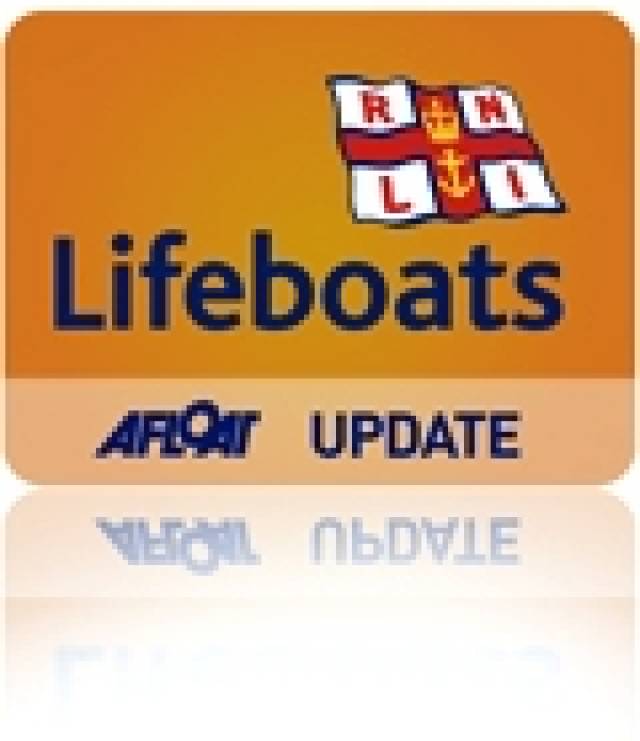#RNLI - Volunteers from Arklow RNLI in Co Wicklow are to feature in a Christmas special to be broadcast on TV3.
The documentary, Unsung Heroes, will highlight the efforts of those who provide the essential rescue service throughout the year, including over the festive season.
It will be broadcast twice over Christmas, first at 8pm on Friday 21 December and again at 8pm on Sunday 23 December.
A TV3 film crew spent the morning of Tuesday 27 November at Arklow RNLI filming at what is the oldest of the 44 lifeboat stations in Ireland.
Producer Patrick Kinsella and cameraman Vinnie Broderick shadowed the volunteers on a training-based exercise when they launched their all-weather Trent class lifeboat, the Ger Tiighcelarr.
"The documentary is about unsung heroes," said Kinsella, "and I suppose given my own experience having worked in the shipping industry, I feel the RNLI and its people – the men and women who run and manage this organisation - cannot be praised enough for putting their lives at risk to save others, and I think this programme is a good way to shine a light on the work they do."
During the exercise, Kinsella and Broderick had the opportunity to experience first-hand and get a glimpse of the level of training required by RNLI volunteers to become highly skilled and efficient in order to carry out lifesaving work which can often be difficult and sometimes dangerous.
Interviews were carried out with lifeboat operations manager Jimmy Tyrell, coxswain Ned Dillon and volunteer crew member Stephen Furlong. Tyrell said filming with TV3 was a great opportunity to showcase the commitment of volunteers, not only in Arklow but in the many other coastal and inland water communities across Ireland.
He said the RNLI wouldn’t exist without fundraising, adding that the charity was totally reliant on the generosity of the public and indebted to work of fundraisers at station branches as well as those raising money inland.
Tyrell also said crew members would happily exchange their Christmas dinner and the comfort of their homes should the need arise this year to help anyone who may find themselves in difficulty at sea.
"It is because of the willingness and selfless nature of our volunteers, who will readily swap leisure, comfort and sleep for cold, wet and fatigue that the charity can provide an on-call, 24-hour lifeboat search and rescue service here," he said. "The RNLI depends on its volunteers who give their time, skill and commitment, even at Christmas time.
"Indeed, while our lifeboats are busy all year round, some of the most challenging callouts can occur over the winter months. And while most of us will be enjoying the Christmas festivities with our loved ones, we know that somewhere, RNLI lifeboats will be launched to help save lives at sea."































































